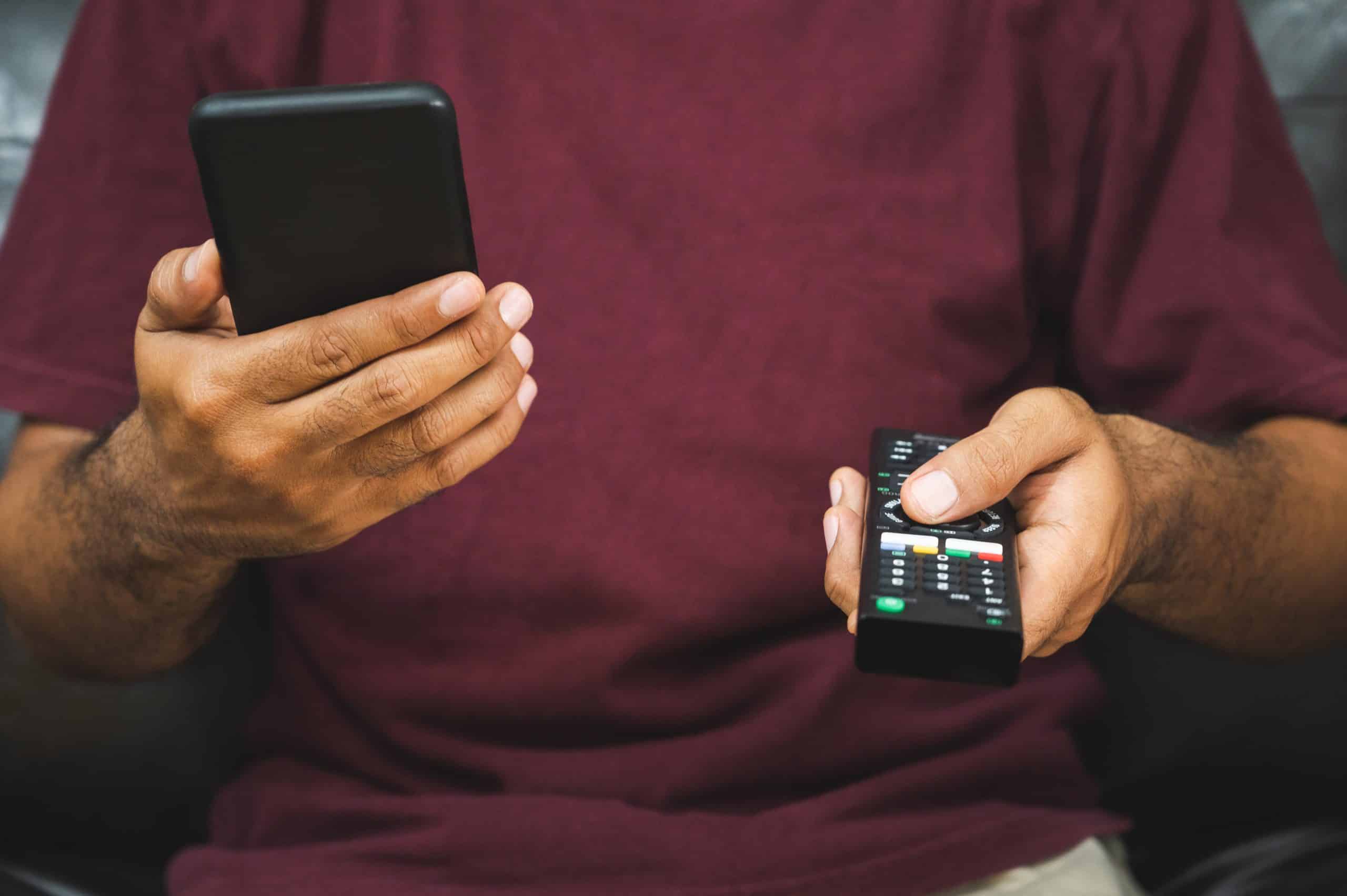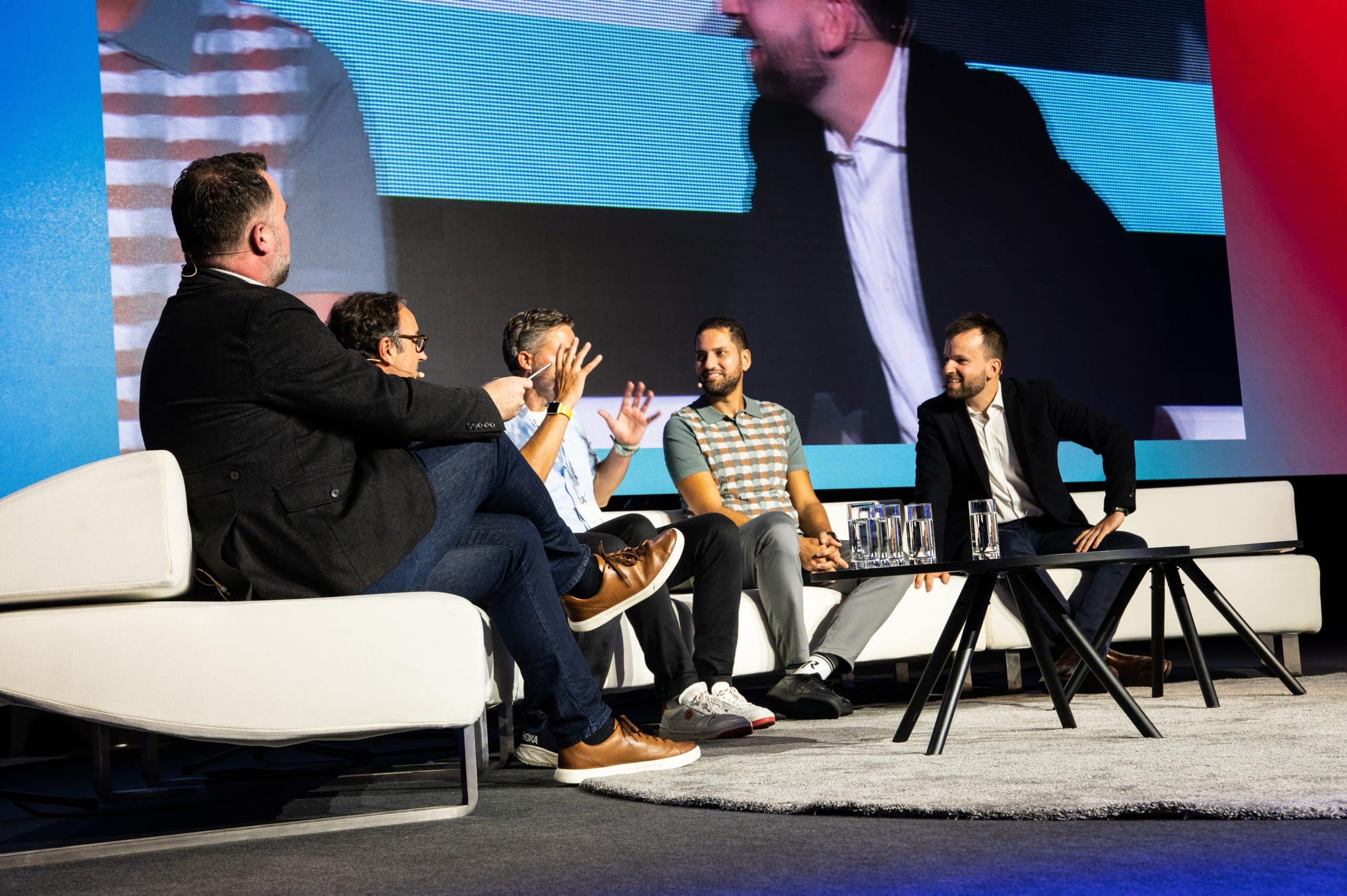What happens when a recognizable and beloved brand decides to reinvent itself – and can it do so without losing its identity?
That question was at the heart of the Navigating Brand Transformation With Authenticity panel at Advertising Week New York 2025, moderated by Davin Power, VP North America at Taboola.
Joining him on stage were Jessica Williams, Head of Brand & Partnerships at Shopify; Travis Freeman, Chief Media Officer at Inspire Brands; and Beverly Jackson, VP of Brand & Product Marketing at Zillow.
Together, they explored how brands can evolve to meet shifting expectations, new technologies, and emerging audiences – all while staying true to who they are. Here are 5 of the key lessons that emerged from their discussion.
1. Transformation Begins With Authentic Purpose
Before a brand can launch a shiny new logo or creative campaign, transformation must begin inside the organization, with how a company defines its purpose, structure, and goals.
Power opened the discussion by reflecting on Taboola’s own evolution: from a native advertising pioneer to a powerful performance platform that helps brands drive outcomes across diverse open web environments. Through major milestones – including its 30-year partnership with Yahoo, becoming the exclusive reseller for Apple News, and launching Realize – Taboola’s repositioning never strayed from its core purpose: to deliver performance at scale to advertisers on the open web.
“The market knew Taboola as a native advertising platform, but what we really were at our core was a performance platform. So when we thought about how we can expand our offering for clients, we really did take on that center point of being a performance platform, and through Realize, expanded it to mean performance anywhere on the page.”
The idea of staying true to a core mission resonated across the panel.
Jackson described how Zillow’s evolution has been guided by a simple but powerful north star: “making home a reality for more people”. Whether speaking to renters searching for their first apartment, families navigating home loans, or the real estate professionals who help close those deals, that purpose is behind every part of Zillow’s transformation.
That clarity has helped Zillow evolve from a beloved browsing destination to a full-service platform for all things real estate, strengthening both its consumer brand and its B2B relationships.
The takeaway was clear: when brands lead with a shared sense of why they exist, every innovation, from new technology to new storytelling or new audience expansion, builds naturally from that foundation.
2. Know Your Audience – And Who You’re Not For
Another strong theme that emerged from the session was the power of focus.
Freeman explained that after years of trying to appeal to everyone (“Everyone eats, right?”), Inspire Brands’ portfolio of restaurants – including Dunkin’, Arby’s, Sonic, and Baskin-Robbins – learned to grow by narrowing in on the right customers.
For Dunkin’, that meant doubling down on a younger Gen-Z audience through light-hearted humor and adding the likes of Ice Spice and Sabrina Carpenter to its line-up of brand ambassadors alongside (but not instead of) long-time supporter Ben Affleck – moves that made the brand feel fresh without abandoning its loyal fan base.
For Arby’s, it meant returning to its nostalgic roots rather than chasing every new trend: “Arby’s customers may not want us to have all these weird sandwiches that we’ve been trying to put out to market, but they actually love us for roast beef.”
Freeman summarized it simply: “We realized that we want to be part of culture, but we didn’t want to create culture.”
That same focus has guided Shopify’s work with micro-communities and creators. By helping musicians, athletes, and digital influencers to launch their own brands, Shopify is both expanding its customer base and strengthening its credibility with the next generation of entrepreneurs.
“The strength of our brand is to lean into those micro-communities and support the entrepreneurs that are already building there, and let them tell their stories through the lens of how they built on Shopify,” explained Williams.
3. Harness Data And AI As Tools For Authentic Storytelling
No discussion at Advertising Week 2025 was complete without touching on AI, and this panel was no exception.
Williams shared how Shopify rebuilt its platform to be AI-first, giving merchants access to a suite of tools to help them be successful.
“We have rebuilt our own platform to make it easier for entrepreneurs to start a business. We operate as your CMO, your tax consultant, your shipping expert, your CFO, your data analyst – and the platform has really changed pretty dramatically in order to support that.”
Zillow, too, is using AI to deepen its relationship with users on both sides of its marketplace. Jackson highlighted the brand’s new integration with OpenAI, enabling natural-language searches (“Find me a home near a dog park and an Arby’s”), while reminding the audience that Zillow’s Zestimate tool was one of the earliest examples of AI in action.
4. Authenticity Is Built Through Human Connection
Across every story shared on stage, one lesson stood out: authenticity isn’t an abstract brand value – it’s built through real human connection.
For Shopify, that means creating opportunities for people to experience their favorite brands beyond the screen. Despite its ecommerce focus, Shopify has invested heavily in running in-person brand pop-ups where fans can meet the entrepreneurs behind the products they love.
“We run pop-ups almost every weekend, because everyone is dying to experience their favorite DTC brand that they’ve never been able to in real life,” Williams explained. “Shopify becomes the place and the space and the brand that is supporting them to do that.”
That focus on connection extends beyond just consumers, too. Jackson described how Zillow’s relationships with real estate agents – who are both customers and partners – are built on trust, not transactions. Through in-person hospitality events and local activations, Zillow gives agents space to share their challenges and ideas in a more personal way.
“At the very beginning, our creative was about heroizing agents – but I don’t need to put an agent in a cape,” shared Jackson. “What I need to do is put an agent in some software that helps them drive their business, that helps them deliver return on investment for their clients.”
Whether through a pop-up store or a heart-to-heart conversation on the golf course, both brands recognize that authenticity is something you demonstrate, not declare.
5. Measure What Matters (To You)
To close the conversation, Power asked each leader to share how they know that what they’re doing is working, and that they’re succeeding in walking the line between transformation and authenticity.
For Freeman, measurement starts and ends with real-world behavior. Across all their brands, success comes down to one north star metric: foot traffic.
“We don’t put a dollar out there unless it’s measured,” Freeman admitted. “We don’t have awareness problems – we have consideration problems. So we push that and see where it falls.”
Williams shared a similar perspective from Shopify, where success is measured by the number of new entrepreneurs and creators joining the platform. Those sign-ups, she explained, are the clearest indicator that the brand’s storytelling and AI-powered tools are resonating.
And for Jackson at Zillow, leadership itself is the metric: “I know it works because I’m still the leader in my space. I’m still the category definer.”
Above all, the panel made it clear that while every transformation looks different, the most authentic ones are grounded in measurable impact. When brands know what success means to them, and track it relentlessly, they can evolve with confidence, clarity, and purpose.
The Bottom Line
Throughout the conversation, one message stood out: authenticity is the foundation that allows transformation to resonate. When brands stay rooted in their purpose, understand their audience, embrace new tools to build genuine connections, and measure what matters to them, change becomes an opportunity rather than a risk.
Each of the brands on stage demonstrated that in an industry defined by constant change, authenticity isn’t about standing still; it’s about moving forward with purpose.
If you’d like to hear the whole conversation, you can watch the full panel session on demand on YouTube.



